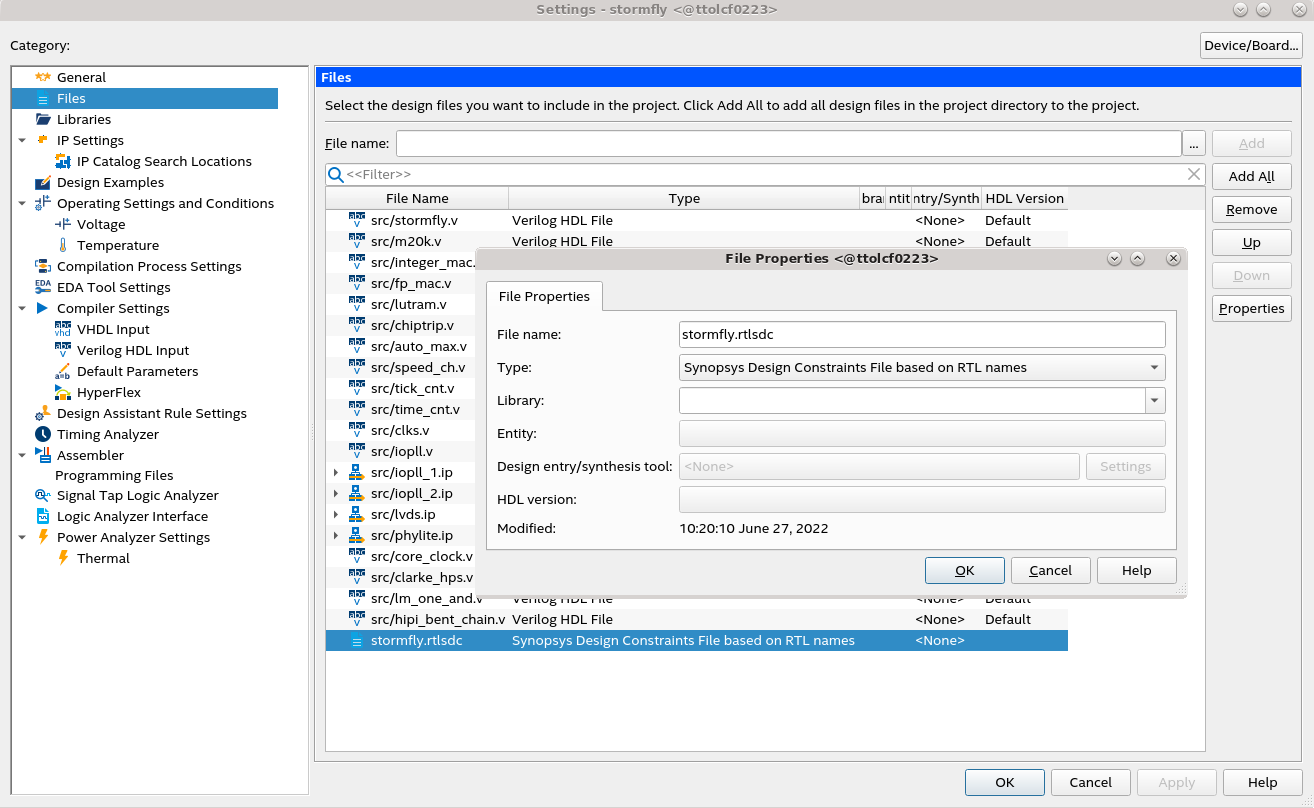Visible to Intel only — GUID: ama1656948059706
Ixiasoft
2.1. Compilation Overview
2.2. Using the Compilation Dashboard
2.3. Design Netlist Infrastructure (Beta)
2.4. Design Synthesis
2.5. Design Place and Route
2.6. Incremental Optimization Flow
2.7. Fast Forward Compilation Flow
2.8. Full Compilation Flow
2.9. Exporting Compilation Results
2.10. Integrating Other EDA Tools
2.11. Synthesis Language Support
2.12. Compiler Optimization Techniques
2.13. Synthesis Settings Reference
2.14. Fitter Settings Reference
2.15. Design Compilation Revision History
2.9.1. Exporting a Version-Compatible Compilation Database
2.9.2. Importing a Version-Compatible Compilation Database
2.9.3. Creating a Design Partition
2.9.4. Exporting a Design Partition
2.9.5. Reusing a Design Partition
2.9.6. Viewing Quartus Database File Information
2.9.7. Clearing Compilation Results
3.1. Factors Affecting Compilation Results
3.2. Strategies to Reduce the Overall Compilation Time
3.3. Reducing Synthesis Time and Synthesis Netlist Optimization Time
3.4. Reducing Placement Time
3.5. Reducing Routing Time
3.6. Reducing Static Timing Analysis Time
3.7. Setting Process Priority
3.8. Reducing Compilation Time Revision History
Visible to Intel only — GUID: ama1656948059706
Ixiasoft
2.3.2.1.1. Registering the SDC-on-RTL SDC File
For the Early Timing Analysis flow, your design must include an associated SDC-on-RTL SDC file. You must register the SDC file with Intel® Quartus® Prime software by adding it to the QSF, as shown in the following image:
Figure 36. Registering the SDC-on-RTL SDC File


SDC files are registered with an Intel® Quartus® Prime software project through the following RTL_SDC_FILE assignment:
set_global_assignment -name RTL_SDC_FILE sdc_on_rtl_file.sdc
Note: Although you can use any file extension, Intel® recommends using an intuitive file extension, for example, rtlsdc, to help distinguish SDC-on-RTL SDC files from the conventional Intel® Quartus® Prime software SDC files if your design uses both.